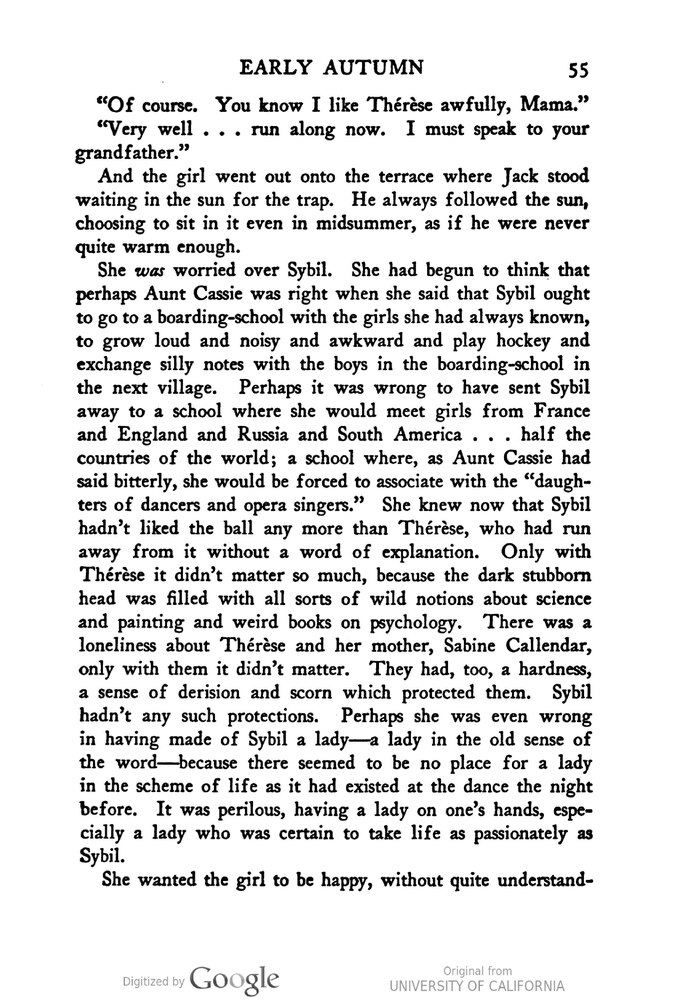"Of course. You know I like Thérèse awfully, Mama."
"Very well . . . run along now. I must speak to your grandfather."
And the girl went out onto the terrace where Jack stood waiting in the sun for the trap. He always followed the sun, choosing to sit in it even in midsummer, as if he were never quite warm enough.
She was worried over Sybil. She had begun to think that perhaps Aunt Cassie was right when she said that Sybil ought to go to a boarding-school with the girls she had always known, to grow loud and noisy and awkward and play hockey and exchange silly notes with the boys in the boarding-school in the next village. Perhaps it was wrong to have sent Sybil away to a school where she would meet girls from France and England and Russia and South America . . . half the countries of the world; a school where, as Aunt Cassie had said bitterly, she would be forced to associate with the "daughters of dancers and opera singers." She knew now that Sybil hadn't liked the ball any more than Thérèse, who had run away from it without a word of explanation. Only with Thérèse it didn't matter so much, because the dark stubborn head was filled with all sorts of wild notions about science and painting and weird books on psychology. There was a loneliness about Thérèse and her mother, Sabine Callendar, only with them it didn't matter. They had, too, a hardness, a sense of derision and scorn which protected them. Sybil hadn't any such protections. Perhaps she was even wrong in having made of Sybil a lady—a lady in the old sense of the word—because there seemed to be no place for a lady in the scheme of life as it had existed at the dance the night before. It was perilous, having a lady on one's hands, especially a lady who was certain to take life as passionately as Sybil.
She wanted the girl to be happy, without quite understand-
